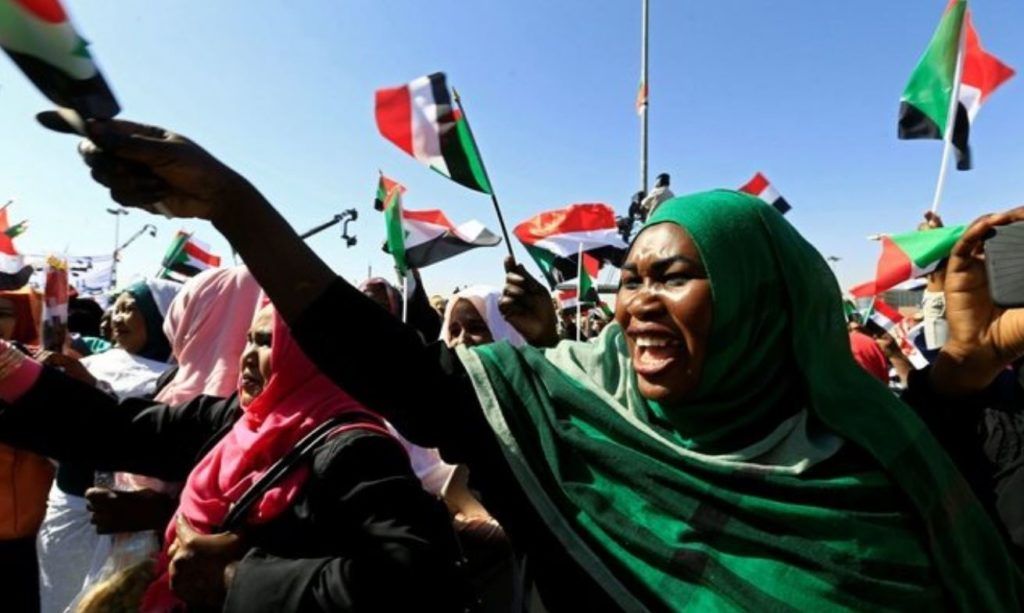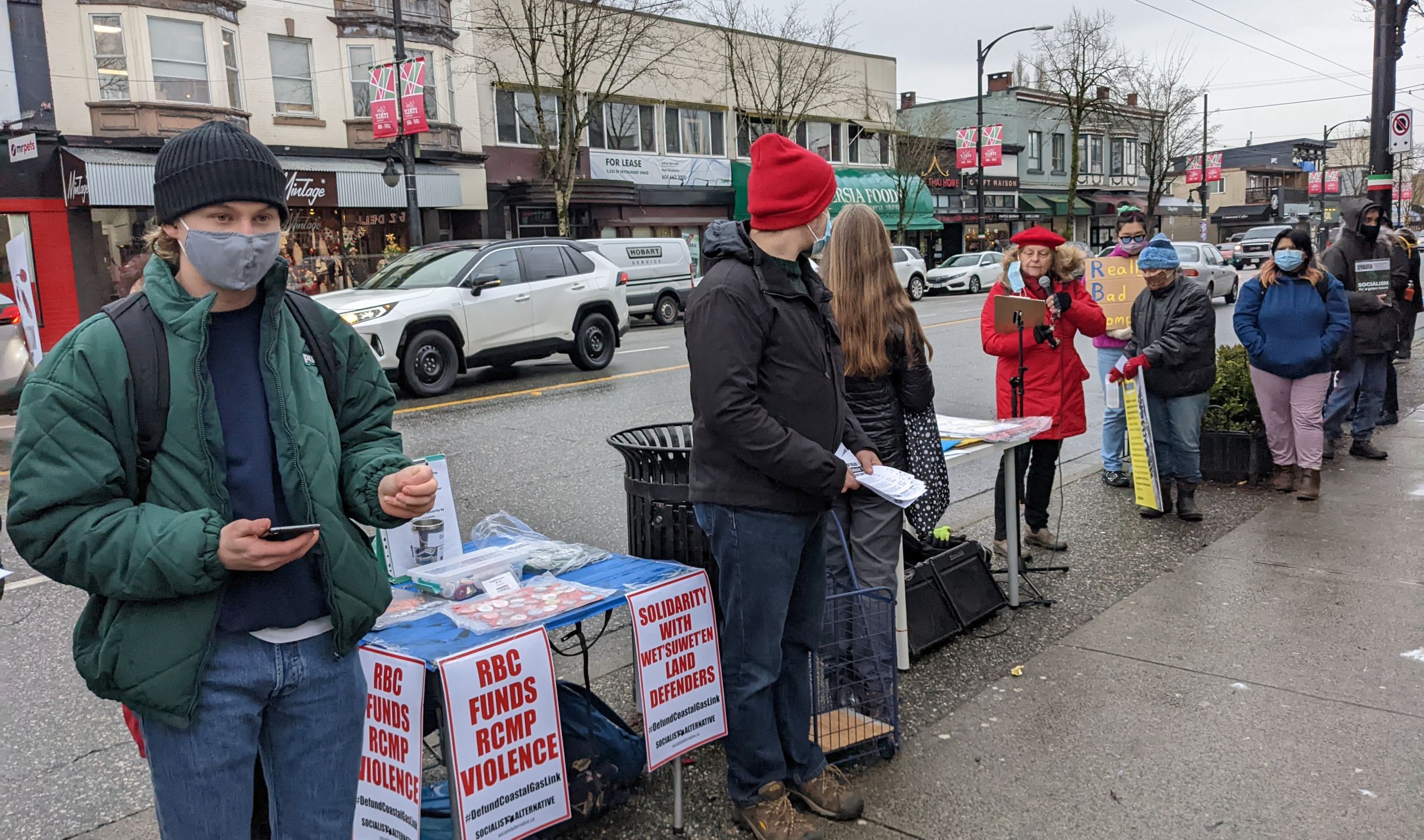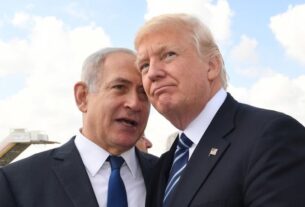Written by CWI supporters in Sudan.

Down with the military junta, all power to the Sudanese workers and the people
After a new round of unfruitful negotiations with the military plotters, the Sudanese Professional Association (SPA) has finally decided to call for a countrywide general strike. The Committee for a Workers’ International (CWI) and Socialist Alternative Sudan fully support this important call and bring solidarity to the heroic and ongoing struggle of the Sudanese masses, fighting for freedom from the shackles of dictatorship and exploitation.
The opposition has come to this point after the recent stalling of the talks with the Transitional Military Council (TMC) to agree on the composition of a joint “transitional council”. This marks the failure not only of the negotiations themselves, but also of a political strategy up to now centred around the illusion that it is possible to conclude an acceptable compromise with the generals who have grabbed power by force in order to cut the revolutionary flood in its track.
Why should a revolution that got rid of Al Bashir through the sweat, tears and blood of our people end up negotiating a power-sharing arrangement with part of the oppressive apparatus that protected and benefited from his rule for so long? There is no way the military rulers have any intention to relinquish power, and they will not leave the scene unless they are compelled to do so by the force of mass revolutionary action – the only language they understand.
In that sense, the call for a general strike offers the chance to put the ball decisively back in the hands of the revolution. Bringing all offices, services and factories to a standstill would clearly illustrate who has the actual power in the country: those who are making it running by their labour every day. The strike needs to be transformed into a gigantic show of strength, with mass street demonstrations in every city, town and village, bringing along all sections of the population who have suffered under the yoke of the old regime and genuinely aspires to a radical transformation of their lives: young people, unemployed, small traders, poor peasants, women of all ages, and all those who are desperately trying to make a living through the weighty underground economy.
While the SPA has not specified a date, the strike is already underway in some sense – several categories of workers are already on the move, and work stoppages have already taken place. For example, banking, insurance and telecom workers have been out in Khartoum’ streets, and demonstrations and rallies have taken place all over Sudan already campaigning for the strike. Across Sudan and around the world, thousands of Sudanese activists are posting pictures online to show the massive support that exists for the general strike.
The SPA explains in its statement that “In order to achieve a full victory, we are calling for a huge participation in a general political strike”. This has to be welcome, but the movement needs clear goals about what “achieving a full victory” concretely means. The masses do not want the strike to be merely used as a bargaining tool to go back to the negotiating table with the generals; as the experience of the last few weeks has now amply demonstrated, this is a complete dead-end.
What is necessary is an independent mass struggle to force the military junta and all the forces of the old regime out. It is clear that most protesters share this goal, and that is what they mean by a “civilian government” – a government that would be free of all the scourges and brutalities of the past, and would undertake to fight for the realisation of all the political, social and economic demands at the heart of the revolution. Nothing short of this could be seen as achieving full victory.
But some forces hostile to the revolution also hide themselves behind the call for a civilian administration. Imperialist powers, like the US and British governments, have urged the TMC to move towards civilian rule. However, the White House, responsible for years-long crippling economic sanctions on our country’s economy, is no friend of the Sudanese people. For sections of the international ruling class and the domestic liberal opposition, “civilian rule” means in reality pro-capitalist rule with civilian faces, and a government that suits their interests in Sudan and the region. The Tunisian revolution has seen 9 “civilian governments” since the overthrow of the ousted dictator Ben Ali; yet none of them has addressed the demands of the revolution, all have pursued with the same anti-poor economic policies as those of the old regime, enriching a tiny few at the expense of the many.
As long as the economy is run for the profits of a corrupt ruling elite and big national and foreign corporations, nothing will really change for the majority of the people. Hence a general strike should not only be about pushing the TMC to give in; it should question the economic order in the fields and in the workplaces, fight for better wages and working conditions, decent and well paid jobs for our youth, equal rights for women in all spheres of life, an end to the ever-rising food and fuel prices, mass public investment in infrastructure, housing, health, education, transport etc.
If resources of society were put under public ownership, managed, planned and controlled democratically by the workers and the people for the needs of all – the demands of the revolution could start being tackled seriously. We could start with nationalising under workers’ control all the companies which belonged to old regime cronies and businessmen, scrapping the monumental military and security budgets, and repudiating the payment of the debt contracted under Al Bashir. Such socialist policies are the only way to put an end to the pillaging of the economy and the ocean of misery it brings along, and would be a huge source of inspiration for workers, poor and oppressed people across Sudan’s borders.
Mass assemblies and elected committees, such as those which have already sprung up in the course of the struggle of the past months, could discuss these questions and more, and help organising the strike in all workplaces and communities. Similar committees should be encouraged in the military barracks, for the soldiers who sympathise with the revolution to elect their own officers and join the revolutionary struggle for a new Sudan.
All these revolutionary committees are important not only as bodies to organise the struggle, but also as springboards towards running society on a radically new basis, organising the defense of the revolution, planning the supplying of areas in need, …and preparing the masses to take over the running of the country in their own hands. If linked up at a local, statewide and national level, they could bring about a revolutionary government, as a grassroots and democratic emanation of the struggle of workers and the revolutionary people from across the country.
- Forward with the general strike!
- No compromise with the generals! Down with military rule – for a government of workers and poor
- Build strike action and defense committees in all workplaces and neighbourhoods
- Defend all democratic rights
- For the rights of the Sudanese people to determine their own future – no to imperialist and regional interference in Sudanese affairs
- Down with capitalism, exploitation and war! Return all troops from Yemen
- Solidarity with the Algerian revolution and with the struggles of workers and poor around the world
- For a free, democratic and socialist Sudan, recognizing the right of self-determination of all oppressed peoples




